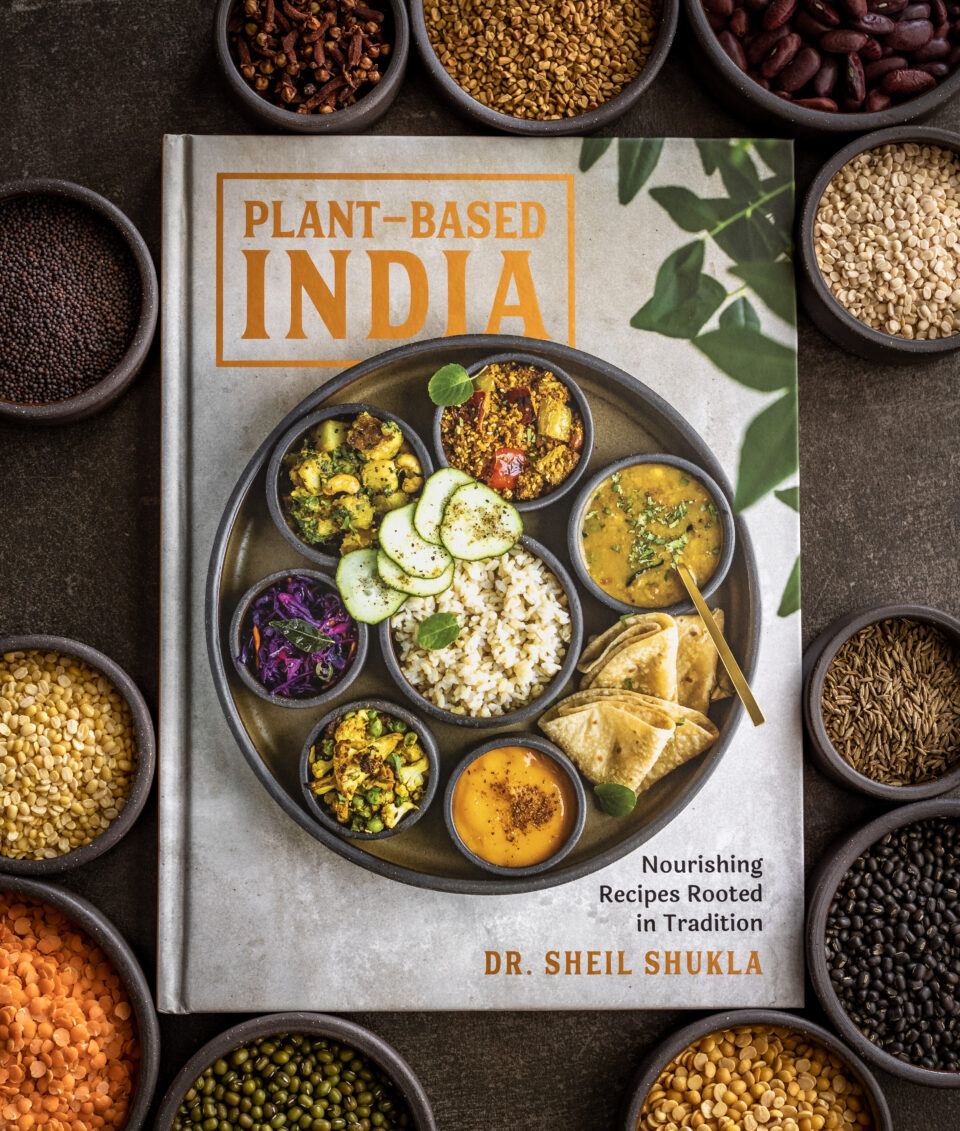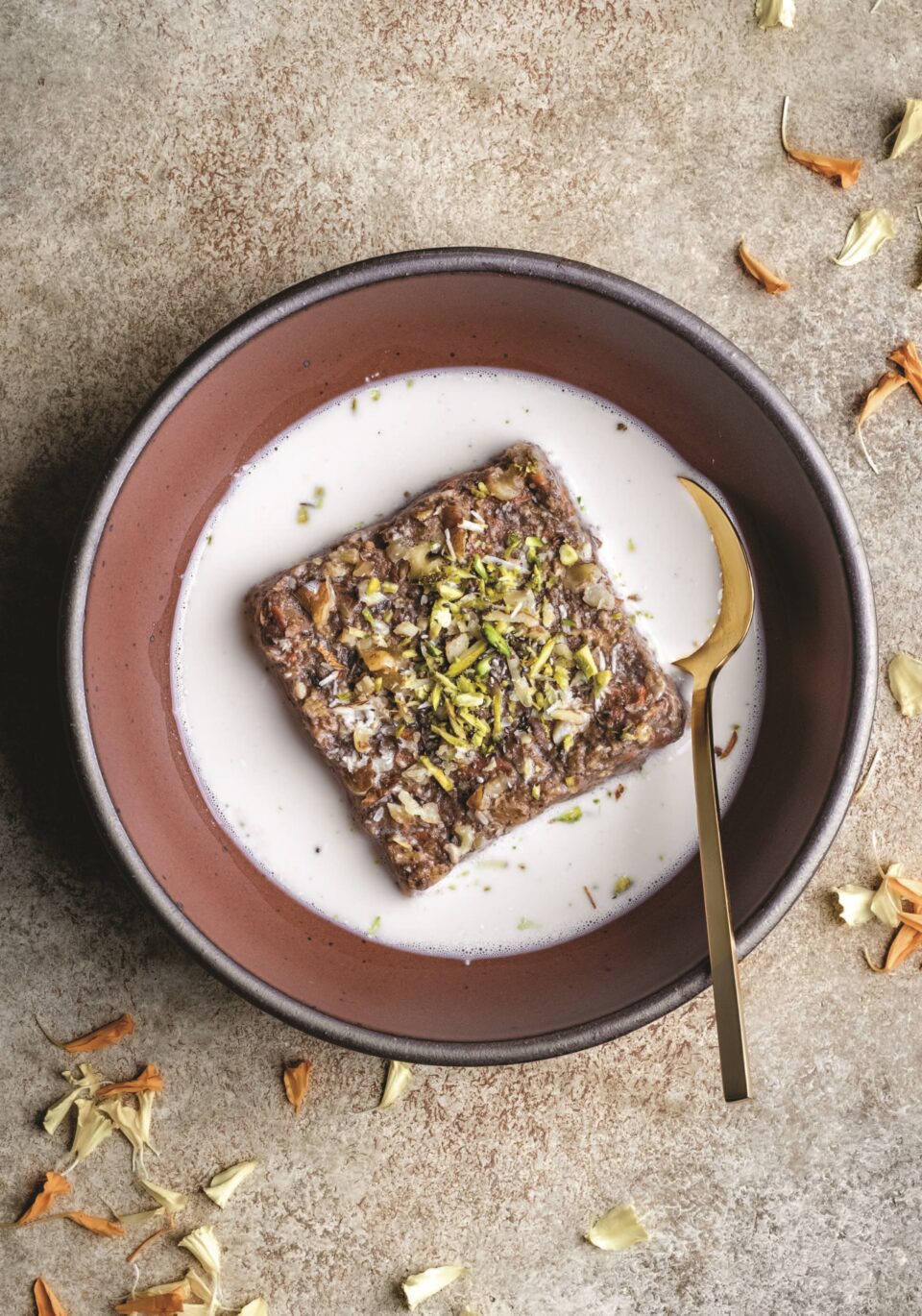| We had the pleasure of talking with Dr. Sheil Shukla about his work, food, traditional Indian culture, and Asian American and Pacific Islander Month. We hope you enjoy this interview. |
Please tell us a little bit about your work and career.
My name is Sheil Shukla, DO, and I am a board-certified internal medicine physician with Northwestern Medicine in Illinois. I am the creator behind @plantbasedartist on Instagram and the author of the vegan cookbook Plant-Based India (published August 2022), which was named one of The New York Times Best Cookbooks of 2022 and nominated for a 2023 James Beard Foundation Book Award.
As a doctor, what do you envision as the way forward to encourage people to include more fruits and vegetables into their diets?
As a primary care physician, I believe one way forward to encouraging more consumption of fruits and vegetables is to educate the medical community about the merits of a plant-based diet. When patients hear this information from their physicians and other medical providers, I think many can be receptive to it. I think it is more important now than ever to combat the misinformation on diets and nutrition that pervades social and traditional media.
What key message would you like to share with our audience about nutrition and public health?
Nutrition plays an incredibly powerful role in public health. Beyond increasing awareness of the benefits of a plant-based diet, I believe more resources should be directed toward the widespread access to healthful foods and addressing food deserts. Furthermore, I look forward to the day that medical providers are equally equipped to counsel their patients regarding nutrition as they do pharmacotherapy.
What are some plant-based ingredients and vegan dishes you would like to highlight as traditional to your culture?
The vast array of spices and legumes is most definitely a highlight of Indian culture. These ingredients are not only incredibly nutrient-dense, but they form the backbone of plant-based Indian cuisine. Some of my favorite spices include cumin, coriander, fennel, and turmeric, and some of my favorite legumes include mung beans, black chickpeas, and red lentils––all of which are used widely throughout Indian cuisine.
What does AAPI Month mean to you, and how is it significant to the work you do?
AAPI Month draws attention to the incredibly diverse and vibrant AAPI community. For me, it means learning from those around me and sharing more about my culture and heritage with others. We are all the better when we share and grow together.
 |
Please tell us a little bit about your book, Plant-Based India. Plant-Based India documents my culinary heritage—the recipes and techniques that have been passed down in my family for generations. It highlights plant-forward aspects of Indian cuisine, in a way that is accessible to the western kitchen and pantry. My cookbook includes more than 100 hearty Indian and Indian-inspired recipes that I developed and photographed myself. |
Gājjar No Halvo Baked Oatmeal
|
Serves 2 to 4 Gājjar no halvo, also known as gājjar kā halwā, is a carrot-based dessert made of grated carrots slowly cooked in milk and sugar. Its comforting warmth will soothe you on any cold day. A nutritious dessert that’s rich in anti-inflammatory compounds, fiber, and omega-3 fatty acids, this dish beats out even the heartiest breakfasts. Popping everything in the oven makes the process much simpler. Feel free to top with warmed nondairy milk and a drizzle of maple syrup after baking to make the consistency thinner and to sweeten it. |
|
Ingredients
- 1 cup (100 g) old-fashioned rolled oats
- 2 tablespoons ground flax seeds
- 1 tablespoon chia seeds
- 1½ teaspoons ground cinnamon
- ½ teaspoon ground ginger
- ½ teaspoon ground cardamom
- Pinch of grated nutmeg
- 1½ cups (360 ml) unsweetened soy milk or other nondairy milk
- 2 ripe bananas, mashed (about ¾ cup/180 g)
- 2 carrots, grated (about ¾ cup/75 g)
- 5 Medjool dates, finely chopped (about ½ cup/75 g)
- 1 teaspoon vanilla extract or vanilla bean paste
- ⅓ cup (40 g) chopped raw nuts, such as almonds, pistachios, or walnuts
- Unsweetened soy milk, warmed
- Pinch of ground cinnamon
Instructions
- Preheat the oven to 350°F (175°C).
- Mix together the oats, flax, chia, cinnamon, ginger, cardamom, and nutmeg in a large bowl until well combined.
- Add the soy milk, bananas, carrots, dates, vanilla, and half of the chopped nuts, and mix until thoroughly combined.
- Transfer the mixture to an 8 to 9-inch (20 to 23 cm) round, square, or oval baking dish. Sprinkle with the remaining nuts and bake until the oats and carrots are tender, about 30 minutes.
- Serve warm with a bit of warmed soy milk and a pinch of ground cinnamon. Keep leftovers in the refrigerator for a few days and reheat with more milk as needed.
Recipe from Plant-Based India: Nourishing Recipes Rooted in Tradition © Dr. Sheil Shukla, 2022. Reprinted by permission of The Experiment. Available everywhere books are sold. theexperimentpublishing.com
For more from Dr. Shukla, check out www.sheilshukla.com and @plantbasedartist on Instagram.



